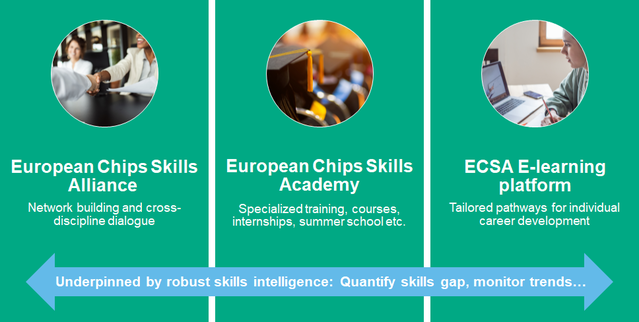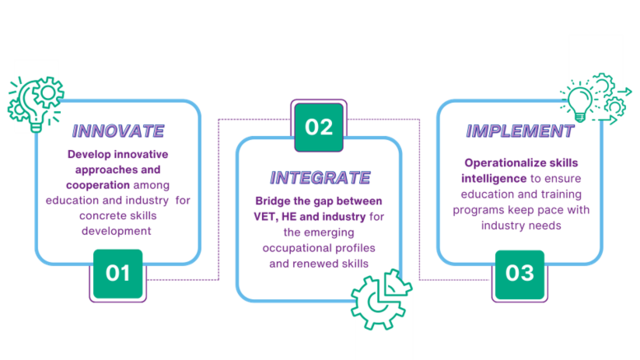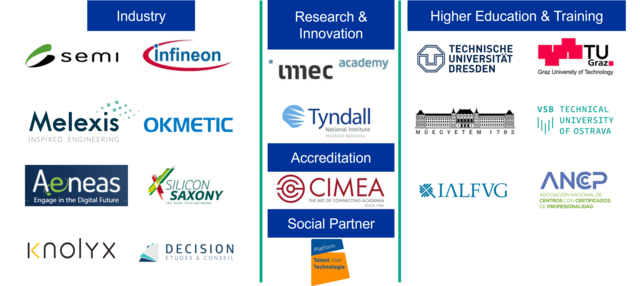The European Chips Skills Academy project, or ECSA for short, aims to create a partnership between the education systems (Vocational Education and Training and Higher Education) and the microelectronics industry to support the growth and innovation of the European microelectronics ecosystem.

Project objectives:
- Implement and operationalise the Skills Pact.
- To establish the first decentralised microelectronics academy of its kind, linking industry, research, higher education and VET currently operating in isolation.
- Develop innovative training and curricula to provide a reactive and proactive response to the sector's skills needs.

The Consortium
The consortium consists of 18 European partners spread across Europe, including partners from education, industry and research, as well as accreditation and social partners. In addition, associate partners support the project by providing input and reviewing the results of this project.

European Chips Diversity Alliance
We are proud to be an associated partner of the European Chips Diversity Alliance. The European Chips Diversity Alliance (ECDA) creates an innovative and robust partnership between academia and industry in the microelectronics sector to promote diversity, equality and inclusion and to lower the barriers to participation for underrepresented groups, which are the MISSING TALENT for the growth and competitiveness of microelectronics on the continent. The ECDA project is closely linked to the ECSA project and enables the utilisation of synergies between both projects.












